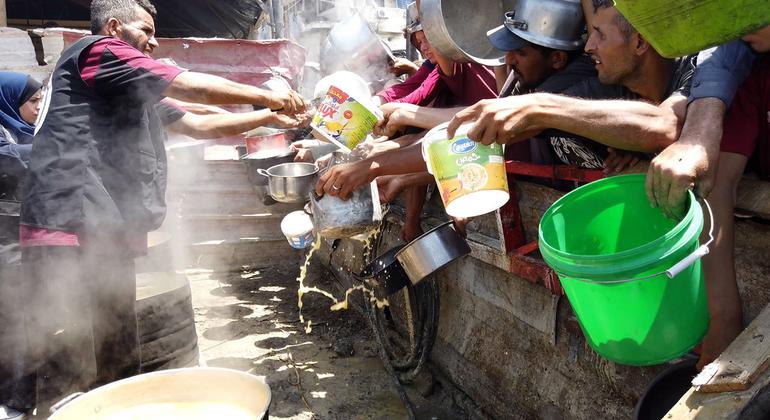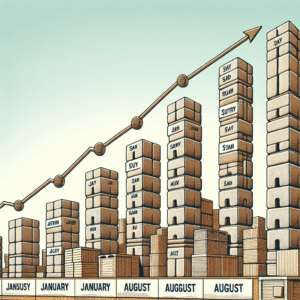Sure! Here’s the translation into American English:
—
The General Commissioner of the United Nations Relief and Works Agency for Palestine Refugees in the Near East (UNRWA), Philippe Lazzarini, has raised his voice regarding the ineffectiveness and high cost of aerial humanitarian aid drops in Gaza. In his statements, Lazzarini emphasized that these methods are a hundred times more expensive than road transport and only manage to deliver half of the necessary assistance. He called on the international community, suggesting that if there is political will for air drops, there should be the same willingness to open border crossings and allow trucks to carry aid. Currently, there are around six thousand trucks filled with supplies waiting to enter Gaza.
The situation in the region is dire. In a recent message on X, Lazzarini called for a flooded supply of assistance to mitigate the hunger crisis in Gaza, where a young man, Mohammed Naifeh, recounted his experience trying to obtain food at a community kitchen, unsuccessfully for hours. “We are dying; we need support, food, and water. Where are the countries of the world?” he desperately demanded.
The Office of the High Commissioner for Human Rights reported that on a single day, between July 30 and 31, 105 Palestinians lost their lives while trying to obtain food, and another 680 were injured due to actions by the Israeli military in the area.
Meanwhile, Haiti is facing an alarming escalation of violence. According to a report from the United Nations Integrated Office in Haiti (BINUH), at least 1,520 people have been killed between January and June of this year. This situation has been exacerbated by the activity of armed gangs and the security forces themselves, which have been involved in 64% of incidents, often using lethal tactics such as drone strikes.
In the capital, the increase in police operations contrasts with the growing influence of gangs, which are expanding into new territories. More than 1.3 million people have been internally displaced due to this violence. Additionally, there have been 628 reported victims of sexual violence and 185 kidnapping cases so far this year.
The food crisis in the Caribbean adds another layer of difficulty for the region’s inhabitants. The World Food Programme has warned that nearly 3.2 million people are facing food insecurity, a number that has risen due to high food prices and geopolitical factors affecting the supply chain. Currently, 30% of the Caribbean population is consuming less food than usual, which heightens their vulnerability to natural disasters.
Amid these crises, World Breastfeeding Week has been inaugurated under the slogan “Healthy Beginnings, Hopeful Futures,” a campaign by WHO and UNICEF aimed at ensuring necessary support for women and babies during this critical period. The importance of regulating misleading advertising of breast milk substitutes is emphasized, promoting the dissemination of accurate information and support both at home and in health centers and workplaces, so that women can exercise their rights during this important time in their lives.
Referrer: MiMub in Spanish











